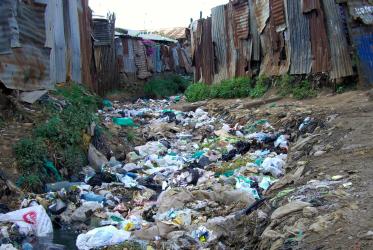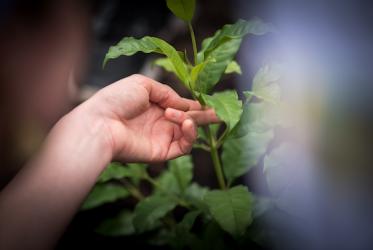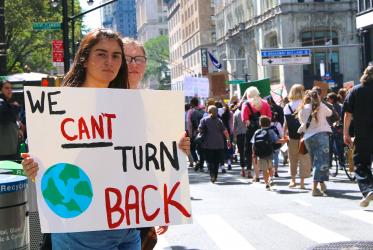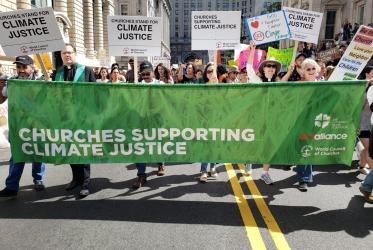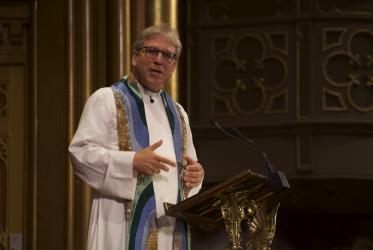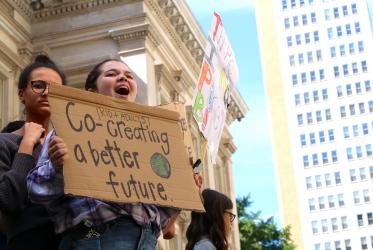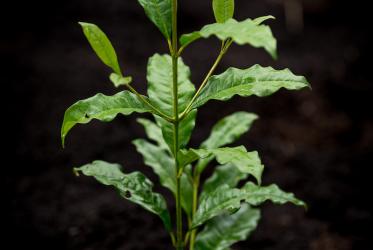Displaying 21 - 40 of 112
16 November 2020
Churches should use their voice on climate change
26 February 2020
CCIA meets in Brisbane with focus on Pacific regional priorities
19 February 2020
Church of South India eco-ministry featured on UNESCO website
17 February 2020
Church response to Australian bushfires hinges on preparation
07 January 2020
New WCC “Eco Ambassadors” pledge to protect our ecology
06 January 2020
Eco-School promotes blue communities, green churches
19 November 2019
WCC Eco-School begins in Thailand
07 November 2019
American and Swedish church leaders sign joint climate justice pledge
26 September 2019
Climate emergency: faith-based groups pledge to amplify prophetic voice
25 September 2019
As Climate Summit begins, churches call for action now!
23 September 2019
“Do you love me?” It’s a question about global warming
22 September 2019
WCC joins global climate strike with throngs of young people
21 September 2019
WCC climate justice project wins Keeling Curve Prize
11 July 2019
WCC remembers lost colleagues
24 May 2019
